About James Allen
The following insight into the life of James Allen and his family is courtesy of John L. Woodcock of Ilfracombe who investigated, compiled and in 2003 published his Illustrated Biography of James Allen.
JAMES ALLEN (1864-1912)
An Illustrated Biography
by John L Woodcock
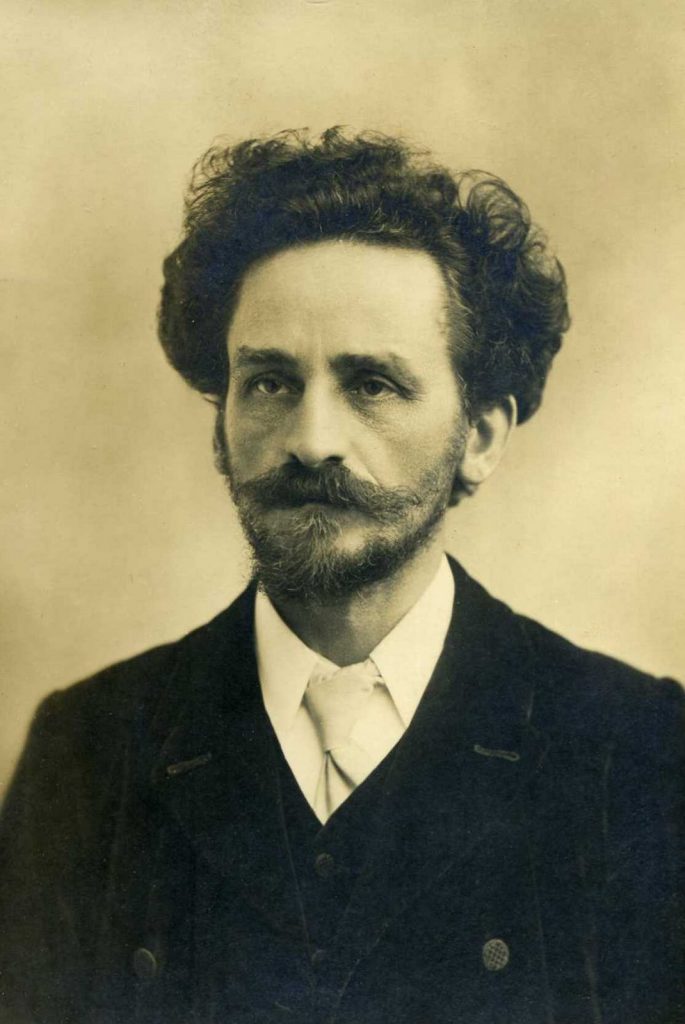 James Allen was born, 28th November, 1864, at 21, Brunswick Street, Leicester. His mother, Martha Allen, formerly Whalton, or Whotton, aged 37 years, registered the birth of her eldest son, on December 2nd with an ‘X’, the mark of the mother.
James Allen was born, 28th November, 1864, at 21, Brunswick Street, Leicester. His mother, Martha Allen, formerly Whalton, or Whotton, aged 37 years, registered the birth of her eldest son, on December 2nd with an ‘X’, the mark of the mother.
The occupation of the father, William Allen is given as ‘Stocking Framework Knitter’. Later there were two younger brothers, George and Thomas, William is known to have been particularly fond of ‘young Jim’. James was a delicate boy of natural refinement who became so keen on books, his father would say, “My boy, I’ll make a scholar of you.”. Allen senior was said to be a high type of man, intellectually; a great reader who approved of the thirst for knowledge he observed in his quiet, studious son.
At school, this rather sensitive boy was subjected to the misunderstanding harshness of some of his schoolteachers, but in adult life there were one or two for whom he retained, ‘tender memories’. Away from school, James was happy to be alone with his books, curled up beside the fire, with his father sitting opposite in an armchair also engrossed in a book.
This was the moment at the end of the day when the boy would often question his father about some serious thought that surged through his mind; if unable to supply an answer, his father would pause to consider it, then peer at his precocious son over his spectacles in silence, to observe quietly, “my boy – you have lived before”, which prompted his son to suggest possible answers to his own questions. The scene was often repeated and on one occasion, young Jim caused his father to remark, “Such knowledge comes not in one short life”.
The boy’s quick mind often startled those about him. It became a cause of concern for his father. Afraid such intense mental activity might damage his son’s delicate health, he was moved to say, “Jim, we will have you in the churchyard soon, if you think so much.”. Many years later he told his wife, and recalled the occasion with a smile. It was not that this delicate, mentally active, bookish boy was by any means unlike other boys; he could play leap frog, marbles and boisterous games with the best of them. In manhood he was to enjoy playing Badminton, croquet or bowls on summer evenings at Bryngoleu, Ilfracombe. (See below-right)
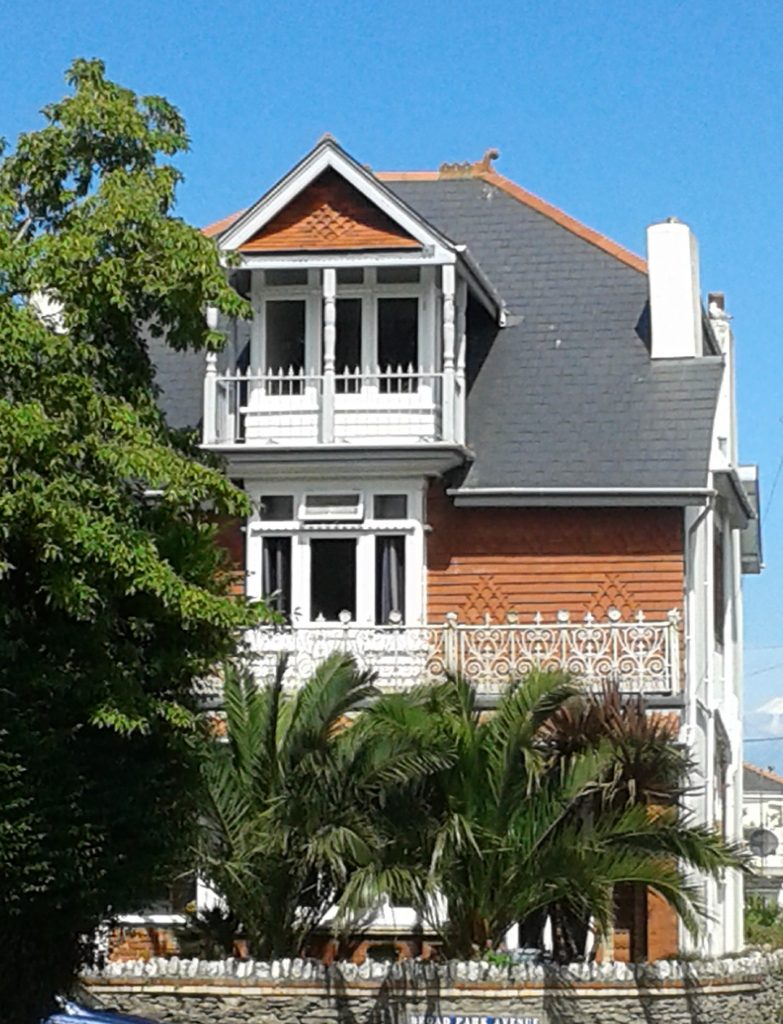
Bryngoleu, Ilfracombe, Devon. Photograph taken August 2015 by kind permission of Mrs Jan Porritt.
James Allen as a youth, delighted in long country walks with his younger brothers, George and Thomas, or with a few chosen friends. They often walked twenty or thirty miles with a hunk of bread and cheese in their pockets. Such walks informed his love of nature which increased with the passing years on is dawn walks to Cairn for his daily meditation. His wife suggests that field mice and woodland birds were attentive during his communication with the Divine.
Tragedy struck at the age of fifteen. The family source of income failed, possibly due to a textile slump in the East Midlands. Allen senior, taking what money he possessed, set sail for America to make a new home for his wife and family. Two days after his arrival he died in a New York hospital. An empty pocket book and a silver watch were his only two possessions; these were returned to his widow. The true nature of what happened remains a mystery. For Mrs James Allen, writing in 1912, it was, ‘a case of robbery with violence.’. In a 1969 Introduction to the work of James Allen, it was murder.
At the age of fifteen James Allen was forced to leave school, and in 1881, his mother, Mrs Martha Allen, aged 53 was living at 75 Charnwood Street, Leicester, with James, aged 16, employed as a frame work knitter. George aged 13 working as a warehouse boy, while Thomas, aged 11, was a scholar. Another widow, Elizabeth Islip, and her two children were lodgers. The occupation of the two widows is that of glove stitcher (the old cottage textile industry of Leicester). James often worked fifteen hours a day in the factory, with only a few hours sleep, but still found time to study and never gave up his books.
When he was seventeen, James began reading his father’s copy of Shakespeare. It became his one book. His Bible. He learned whole plays by heart. Surrounded by the noise of machinery and factory workers, he could lose himself in play. He stood out as a silent, dignified youth. Some of his workmates called him, ‘The Saint’, while others nicknamed him, ‘The Parson’, because he did not smoke or drink. Men cut short the telling of a coarse joke when James appeared and seldom swore in his presence. Women in the workroom refrained from their usual easy going familiarities and tended to regard him, it is said, with reverence; as being, ‘one not of them’.
James abandoned the Nonconformist faith of his parents at an early age, being offended by its superstitions and its doctrine of punishment and hell. Despite the hard life in the factory, these were the years when his thirst for knowledge grew and his heart pursued, the yearned and longed for Truth which he would find at the age of twenty four. It came like a revelation on his personal road to Damascus.
All his young soul had ever yearned for, he found in ‘The Light of Asia’. It came as a great awakening. Reading this immortal poem, he could not stir from his seat until he had read the last word. After reading the poem, James Allen felt he had become a different man. A curtain rolled back from the face of the universe. He saw the cause, and the meaning of things which had been dark mysteries. It was a revelation. Blinding in its brilliance, its suddenness produced an exaltation that alarmed him; yet even as it transported him, the vision faded, but, its influence remained, saving him from hours of doubt and darkness, until he reached the calmer time of meditation and the knowledge it would bring ten years later. This is how he remembered the vivid experience.
After nine years of factory life and various industrial jobs, James felt impelled to leave Leicester, and at the age of twenty five he made the decision ‘to move south’.
(2)
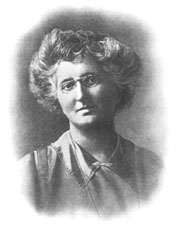
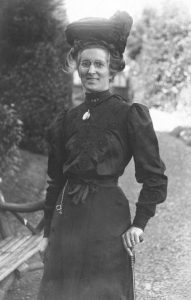 In 1893 when James Allen was 29, he met twenty five year old Lily Louisa Oram. In an article, she writes of working in the East End of London, where, caring for the poor, she was know as ‘Sister Lily’. At one period, she spent some time abroad, and recalls the family Christmas of childhood; and later, how eagerly they awaited the postman bringing letters from loved ones far from home. Lily Louisa was born, 30th December, 1867, at Burrishoole, Eire, where her father, John Oram was a land agent. The birth was registered by John and Jane Oram (nee Talbot) at Newport, County Mayo, 10th February, 1868. Their daughter became a capable pianist able to perform Mozart and Beethoven.
In 1893 when James Allen was 29, he met twenty five year old Lily Louisa Oram. In an article, she writes of working in the East End of London, where, caring for the poor, she was know as ‘Sister Lily’. At one period, she spent some time abroad, and recalls the family Christmas of childhood; and later, how eagerly they awaited the postman bringing letters from loved ones far from home. Lily Louisa was born, 30th December, 1867, at Burrishoole, Eire, where her father, John Oram was a land agent. The birth was registered by John and Jane Oram (nee Talbot) at Newport, County Mayo, 10th February, 1868. Their daughter became a capable pianist able to perform Mozart and Beethoven.
The first meeting was more than, ‘love at first sight’. It was of that otherness, a recognition, in which two people believe they have met and loved before in some other time and place. At that time Lily Louisa knew nothing of the doctrine of reincarnation, yet in her heart, in her soul, she knew that she had known, loved and reverenced this man in some other life. The recognition was mutual. James confirmed it, when much later he told her, “I knew you.” he said, “as my companion, and helper, my one and only love an wife in other earth lives, and I knew no other woman could fill that place in this.”
An application for permission to marry Lily Louisa Oram in Holy Cross Church, Bampfylde, Somerset was made by James Allen, Stationer, Swansea, Glamorgan, on the 15th May, 1895, and the marriage took place by special licence, 22nd May, 1895. The ceremony performed by Philip C. Caffin, Rector. The witnesses were John Oram, retired farmer, and Jane Oram.
(3)
Sidney Hartnoll Beard.
The Order of the Golden Age,
The Beacon, Ilfracombe, N. Devon.
In the autumn of 1894 Sidney Hartnoll Beard and his wife Pattie attended a lecture which changed their lives. They gave up meat eating and became vegetarians. Mrs P. E. beard had been an invalid for several years and endured some painful operations. As a result she was obliged to use a bath chair. Once she converted to a vegetarian diet her health improved. In a short time she abandoned the bath chair, sold it and took to the bicycle.
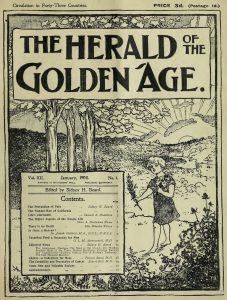 Sidney H. Beard was the founder of The Order of the Golden Age; its official organ was The Herald of the Golden Age. Its office was The Beacon, Torr Park, Ilfracombe. It was published monthly, price, one penny. In an editorial of Volume 111, 1898, he writes, ‘For three years we have devoted the whole of our strength to this work.’ and, ‘new methods and plans have had to be devised and put into execution, pamphlets and leaflets to be prepared for the press, meetings to be arranged and held…and in the interests of The Order as a Society to be guarded by foresight and resolute action.’. The Order of the Golden Age was founded in 1895. It was pro-vegetarianism, anti-vivisection and animal butchery. In the 1898 Editorial Notes he quotes with approval from The Devon & Exeter Gazette, that Miss Chichester of Arlington Court, has forbidden the Devon Hunt to hunt the Arlington grounds. The magazine gave practical advice on health, home hygiene and vegetarian recipes. A Menu for a Bloodless Christmas Dinner. Includes; Brazil Nut Soup — Savoury, Macaroni Cutlets — Butter, Cheese & Biscuits — Sweets, Plum Pudding — Desert, Vanilla Wafer — Mocha Coffee (Infused for three minutes.) Sidney Beard and his wife were Christians who had travelled to the Holy Land. He was fully informed on the methods of animal transport and slaughter world wide, the import and export of fruit, with an obvious fondness for statistics, matched by his interest in science and medicine. A Comprehensive Guide-book to Natural Hygienic and Humane Diet, by Sidney Hartnoll Beard was published by New York, T.Y. Crowell & co. in 1902. A man who loved Shakespeare, and could praise the performance of Sir Henry Irving in The Medicine Man; explain the discovery of wireless waves, conjecture on telepathy, and deal with the medical implications of tubercle bacillus in man and edible beast.
Sidney H. Beard was the founder of The Order of the Golden Age; its official organ was The Herald of the Golden Age. Its office was The Beacon, Torr Park, Ilfracombe. It was published monthly, price, one penny. In an editorial of Volume 111, 1898, he writes, ‘For three years we have devoted the whole of our strength to this work.’ and, ‘new methods and plans have had to be devised and put into execution, pamphlets and leaflets to be prepared for the press, meetings to be arranged and held…and in the interests of The Order as a Society to be guarded by foresight and resolute action.’. The Order of the Golden Age was founded in 1895. It was pro-vegetarianism, anti-vivisection and animal butchery. In the 1898 Editorial Notes he quotes with approval from The Devon & Exeter Gazette, that Miss Chichester of Arlington Court, has forbidden the Devon Hunt to hunt the Arlington grounds. The magazine gave practical advice on health, home hygiene and vegetarian recipes. A Menu for a Bloodless Christmas Dinner. Includes; Brazil Nut Soup — Savoury, Macaroni Cutlets — Butter, Cheese & Biscuits — Sweets, Plum Pudding — Desert, Vanilla Wafer — Mocha Coffee (Infused for three minutes.) Sidney Beard and his wife were Christians who had travelled to the Holy Land. He was fully informed on the methods of animal transport and slaughter world wide, the import and export of fruit, with an obvious fondness for statistics, matched by his interest in science and medicine. A Comprehensive Guide-book to Natural Hygienic and Humane Diet, by Sidney Hartnoll Beard was published by New York, T.Y. Crowell & co. in 1902. A man who loved Shakespeare, and could praise the performance of Sir Henry Irving in The Medicine Man; explain the discovery of wireless waves, conjecture on telepathy, and deal with the medical implications of tubercle bacillus in man and edible beast.
Readers of the magazine became followers who formed discussion groups. On one occasion a Devon social group returned the leaflets as several members were local butchers. The movement and its supporting groups across the country. The Magazine, leaflets and books by Sidney H. Beard were published world wide. The expansion led to a deficit at the end of 1898. Sidney H. Beard contributed £100. Other contributions, in shillings, included James Allen, 2/-, equivalent to a 2 year subscription for the magazine. This was the man whom James Allen, a Swansea stationer, would apply for the post of private secretary. When, where or how this came about is not known, but the Herald of the Golden Age, Vol.111, 1898 contains two poems and an article, Divine Alchemy by James Allen. About two years later Sidney Beard removed to the HQ of The Order of the Golden Age, Barcombe Hall, Paignton, S. Devon. A property owned at one time by the American Singer Family, in later years it became a private school for boys. It was demolished in the 1980’s and replaced by blocks of flats.
(4)
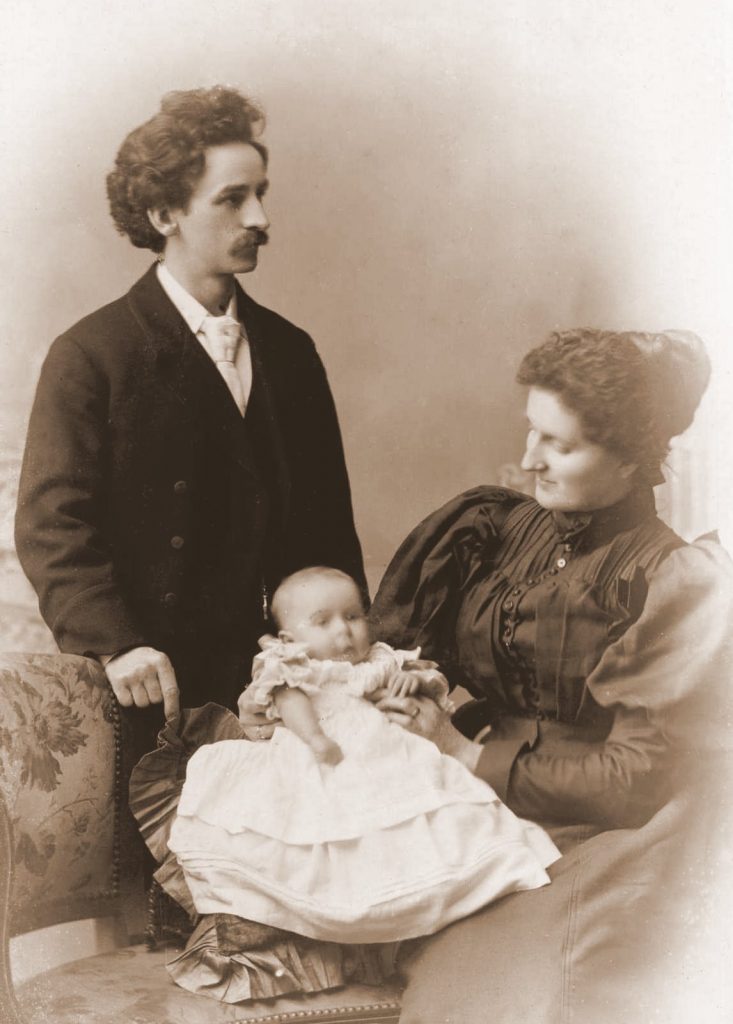 Nora Lily Allen was born 10th September, 1896, at 21, Littlefield Villas, Weymouth, Dorset, later known as 4, Alma Road. Her father’s occupation is given as Master Bookseller. The Allens ‘occupied but did not own the house’. Rate books at Weymouth Museum show that, ‘Just before December, 1899 ‘left’, is marked against his name’.
Nora Lily Allen was born 10th September, 1896, at 21, Littlefield Villas, Weymouth, Dorset, later known as 4, Alma Road. Her father’s occupation is given as Master Bookseller. The Allens ‘occupied but did not own the house’. Rate books at Weymouth Museum show that, ‘Just before December, 1899 ‘left’, is marked against his name’.
Some three years after their marriage when James was thirty three and Nora was eighteen months old, Lily Louisa recognised a change taking place in James as he began to turn away from everything that most men hold dear, that he might find Truth, and lead a weary world to Peace. He began the practice of rising before daylight, to walk to the hills and meditate on Divine things and communicate with God.
In those days Lily Louisa did not claim to understand it. Her husband seemed to live and move in a light that was, ‘too white for my earth-bound eyes to see,’, but, ‘a sense of it was beginning to dawn upon me.’. At times her woman’s heart cried out, wanting him to be all her own, but she dare not stay or hold him back, even though she was yet to understand the nature of his divine mission.
In 1901. James Allen, a private secretary and his family were residing in Bath. His hours of employment were from 9am to 6pm and every moment out of office was spent in writing his books. About this time Sidney H. Beard removed to Barcombe Hall, Paignton, S. Devon. The following year, in 1902, James Allen founded his own magazine, The Light of Reason. By 1903 the Allen family appear on he Residential list of The Gazette and Observer, residing at Ogwen, 3 Broad Park Avenue, Ilfracombe. The house numbers for Broad Park Avenue are 1-26. In 1905 the numbering is from 1-33, but number 3 is omitted. The Ilfracombe Chronicle. 8th April, 1905, Residential List. States. Mr and Mrs Allen and family, Bryngoleu, 33 Broad Park Avenue. During this period his first book was published, From poverty to Power. Its success was followed by, All These Things Added. The book which expresses his ideas most successfully, (an opinion held by many), As a Man Thinketh, he found unsatisfactory; it was his wife who insisted on it publication. These books went into many editions, sold in tens of thousands, while the authorised versions were printed and pirated world-wide.
James Allen learned a great deal about how to organise, publish and present his ideas from Sidney Beard and his magazine. In 1902 he founded his own magazine, The Light of Reason, which in 1905 was incorporated into The Epoch – a magazine destined to survive long after his early death, with subscribers around the world. Sidney Beard advised his subscribers on how to form groups to discuss ideas. James Allen did the same. In the Light of Reason, January, 1905, a report on Meetings, include the North London Group; Harry J. Stone (Hon. Sec.) The West London Group; Mrs Flora P. Howard of Los Angeles, California, addressed the group, reports, Rudolf G. Gerke. Secretary.
Ilfracombe Group. On November 11th, our secretary read a beautiful essay on ‘Character Building’, which was much appreciated by all present, as however it will appear in the February issue, and our friends will then be able to read it, we will not comment further upon it…L.L.A. November 18th. Mrs Allen opened the meeting with a brief address on ‘Influence’. She dwelt mainly upon the fact that we are constantly influencing those about us, that there is a sense in which people feel rather than see, or hear us. And it is that influence which tells what we really are. To have a really good influence required absolute sincerity – which was spoken of as one of the greatest virtues… November 25th. Mr Swift gave us a most interesting evening with the microscope. As we looked at the marvellous perfection and beauty of the stigma of the geranium, the tongue of a fly, the circulation of he sap of a leaf….December 2nd. Mrs Foyster read a lecture by Mrs Besant on, ‘Man the Master of his Destiny’. Recorded by Ada. S. Wormall. Secretary.*
The Birmingham Group, listened to an excellent paper on, ‘The Need for Individual Effort’. At the Liverpool and Birkenhead Group, the secretary read the Editorial from The Light of Reason: the prospect of a visit from the Editor…caused general pleasure. A. C. Duckworth. Secretary. Reporting.
* Residential List, Ilfracombe Chronicle 1905
* Miss Wormall & Mr C. H. Wormall, Western Bank, Station Road, Ilracombe.
(5)
James Allen was guest speaker at many of these groups. In 1905 he planned to visit London, Mansfield, Liverpool, Kidderminster and Bolton. One request offered to pay his travelling expenses. Such offers were welcome. He writes, that those who can also offer him hospitality as well on such visits should communicate with him to that effect.
In 1905 he took over the responsibility of the magazines’ publication, communications, subscriptions, orders for books, etc. assuming direct control ad supervision. Readers could be of great service by ‘sending their subscriptions for the magazine directly to us. This would not only help us financially, it would also bring us in direct contact with our friends’. Prior to this decision, the business portion had been dealt with entirely by the Savoy Publishing Company, London.
Like Sidney Beard, James Allen had a keen interest in many scientific subjects, especially the latest discoveries in astronomy. A study of geology and botany was part of his love of nature. His favourite books included the works of Shakespeare, Milton, Emerson, Browning, The Bhagavad Gita, The Tao Tea King of Lao-Tze; the inspirational poem of his youth, The Light of Asia, The Gospel of Buddha, Walt Whitman, Dr Bucke’s Cosmic Consciousness, and the Holy Bible.
At Bryngoleu, James Allen rose before dawn to cut across to the railway station and follow the woodland path to the top of the Cairn overlooking the town with its view of Wales across the Bristol Channel and memories of his days in Swansea. After an hour of meditation he would return home to write at his desk. In the afternoon, like one of his favourites, Tolstoy, he enjoyed the manual labour of gardening. If there were visitors he would join them in the garden to play croquet. In the evening, wearing his black velvet suit he would converse quietly with friends. English, French, Austrian and Indian visitors would listen to this, ‘frail-looking little man, Christ-like, with a mane of flowing black hair’ talking quietly of meditation and philosophy, with references to Tolstoy and the teachings of Buddha. At such times, in his presence, some were overawed.
The health of James Allen began to decline towards the end of 1911 and a local doctor was in attendance, a man who understood how his patient suffered, yet never complained. Patiently he hid his pain from those around him. He still rose at dawn to meditate. He still spent long hours every day day writing at his desk. At Christmas time there was a visible change in her husband which Lily Louisa refused to believe – –
“I was blind ! blind! Blind! I could not think it possible that he should be taken and I left!”
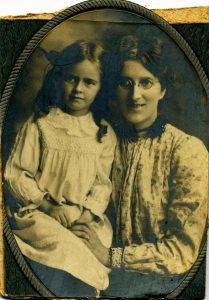 Often in the past Lily Louisa urged him to stop work and rest awhile; but always James gave her the same answer, “My darling, when I stop I must go, don’t try to stay my hand.” Now the three clung closer to each other, loved one another, with a greater love than ever before. He continued to work until Friday, January 12th, 1912 – –
Often in the past Lily Louisa urged him to stop work and rest awhile; but always James gave her the same answer, “My darling, when I stop I must go, don’t try to stay my hand.” Now the three clung closer to each other, loved one another, with a greater love than ever before. He continued to work until Friday, January 12th, 1912 – –
“When about one o’clock he sat down in his chair, and looking at me with great compassion and yearning in those blessed eyes, he cried out, as he stretched out his arms to me, ‘Oh, I have finished, I have finished, I can go no further, I have done,’ “
As the end drew near James placed his hands on the head of his beloved in blessing, giving his work into her hands, charging her ‘to care for his people’, and help them, ‘until I received the call to give up my stewardship’. Then he said to her:
“I will help you, and if I can I shall come to you and be with you often.”
There was a smile on his calm, pale face when their daughter Nora came to say her words of farewell, “my little darling”, he said gently, as she kissed him goodbye. Shortly before he died he whispered, so softly, his wife had to lean close to hear his words. “At last, at last—at home—my wanderings are over—“ At these words Lily Louisa heard no more—her heart was breaking—for him indeed it was ‘home at last’, — but for her? As if he read her thoughts, James held out his hands to her:
“I have only one more thing to say to you my beloved, and that is—I love you—and I will be waiting for you” then, with his failing breadth he whispered, “goodbye.” James Allen died on Wednesday, January 24th, 1912. The body was clothed in white linen. The hands held at its breast a photo of Lily Louisa.
(6)
James Allen lived through the long widowhood of Queen Victoria and the Boer War. A delicate child in an age of consumption. His parents followed a faith that belonged to the heyday of John Wesley. In later years, they and their elders had to come to terms with the post Darwinian implications of the Origin of Species. In 1870, newspapers gave graphic accounts of the Franco-Prussian war. On the land, farm children were called away from the harvest to attend the new National Schools. Tales of Waterloo and Crimea were still told by veterans in many a town and village, changed by the railways into an age of increased mobility.
During his factory years, James would have know young idealists; fellow workers who supported the growing Trade Union movement. The new plays of Henrik Ibsen were seen on the London stage. The music of Wagner heard in the concert halls. The Pre-Raphaelites, the poetry of Robert Browning, and many new magazines were published. Madame Blavatsky and the Theosophists, the Bhagavad-Gita; vegetarianism, Sidney Beard and the Herald of the Golden Age were an influential aspect in the 1890’s and, form a link with a photograph of ‘The Editor’s desk’, taken by C. N. Foyster; on it a reproduction of The Light of the World by Holman Hunt, placed beneath a portrait of James Allen, founder of the magazines, The Light of Reason, The Epoch, and author of nineteen books.
A thick hoar-frost covered the hard earth with a mantle of white at 11am, Tuesday, January 30th, 1912. A winter for eager skaters to jostle each other on the ice. The day and hour of the service at the Leicester Crematorium was known only to the immediate family and a few close friends. Punctually at 11am the remains of James Allen were committed to the flames. The mourners retired to an adjoining room for a period of solemn silence, meditation and to remember the life and character of their Beloved. An hour later after the mourners had departed, Thomas W. Allen, youngest brother of the deceased stepped out into the cemetery surrounding the Crematorium, and solemnly scattered the still warm ashes of his brother with this invocation:
“As these ashes of James Allen are cast to the four winds of Heaven, so may the Truth he taught permeate to the four corners of the earth, carrying with it Joy, Peace and Consolation.”
A minute later Thomas was on the high road; a thin layer of snow covered the landscape where his brother James had picked blackberries, and enjoyed country rambles in his youth. Soon Thomas was in the bustle of a large manufacturing town. An hour later he was on a train speeding away from Leicester that was once home.
Excerpts presented as written by John L Woodcock, 2003.
Adapted by Kevin D Williams, 2015. Permission granted by J L Woodcock, 2015.
Original publication can be perused at the Ilfracombe Museum, Devon.
Original content: Copyright © John L Woodcock 2003.
Acknowledgements:
Thank you John – on behalf of all who appreciate and respect the work and intent of James Allen, we are truly grateful to you for creating such an informative narrative and a moving tribute.
Thank you to the staff of Ilfracombe Museum, Wilder Road, North Devon.
Thank you Jan Porritt for your hospitality and generosity.
